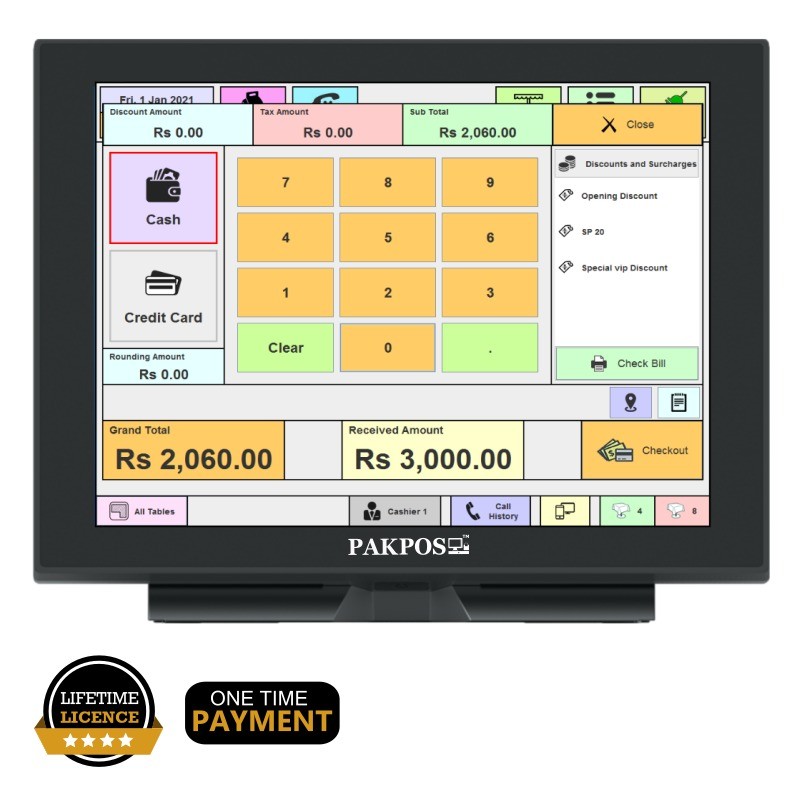In today's dynamic business landscape, possessing the right resources can create a significant difference in your prosperity. One of the top crucial resources for commercial and service businesses is a Point of Sale (POS) system. Understanding what a POS solution is and how it functions is essential for any business owner looking to enhance effectiveness and improve client satisfaction. From additional hints to contemporary online options, the evolution of POS systems has transformed how businesses manage transactions, supplies, and client relationships.
Tailoring your POS platform to fit your specific needs can unlock a range of advantages. Regardless of whether you manage a bustling dining establishment, a store shop, or an digital platform, adapting your POS platform can lead to improved output, streamlined processes, and ultimately a more fulfilling interaction for your customers. In this manual, we will discuss the numerous elements of POS systems, including their features, benefits, and how to choose the most suitable option for your individual operation requirements.
Comprehending POS Systems
A Point of Sale system, often known as a Point of Sale system, is a crucial element for every enterprise that engages in sales transactions. At its core, a POS system is the point where a client finalizes their buy, merging physical devices and applications to enable functions like sales tracking, stock control, and customer relationship management. Contemporary Point of Sale systems go beyond mere transaction processing, providing valuable information and tools that help companies function in a more effectively.
The evolution of Point of Sale solutions has been significant, transitioning from traditional cash registers to sophisticated, web-based systems. This upgrade allows companies to retrieve immediate data and analytics from any location, making it simpler to control sales, stock, and client data. The transition to portable and tablet POS systems has also enabled stores and eateries to deliver quicker assistance and improved customer experiences, enhancing both speed and ease in the transactional workflow.
Understanding how to choose and customize a POS system based on distinct demands is essential for prosperity. Considerations such as sector needs, client relations, and integration with current programs play a significant part in deciding on the right solution. For example, a shop may focus on stock management capabilities, while a diner might prioritize on table management and order processing. By coordinating a POS system with your aims, you can build a tailored solution that improves daily operations and supports sustained development.
Selecting the Right POS Solution
Selecting the right POS system for your company is crucial for functionality and customer satisfaction. Begin by assessing the specific requirements of your business, taking into account aspects like size, industry, and customer interactions. For instance, a restaurant may need advanced capabilities like table logistics and custom menu options, while a shop might focus on stock management and CRM systems. Understanding these unique requirements will guide you in assessing different solutions available in the industry.
As soon as you have a solid understanding of your needs, it's important to investigate and compare different POS solutions. Look for industry-specific systems that suit your company category, such as retail or hospitality. Review customer testimonials and case studies, and take into account implementation experiences provided by similar companies similar to yours. This will offer insights into the solution's performance and reliability, thereby aiding in arriving at a thoughtful decision.
Finally, evaluate the flexibility and versatility of the POS solution. As your company grows and evolves, your POS solution should readily adjust to new demands, whether that's accommodating more clients, integrating with e-commerce platforms, or providing sophisticated analytics. Confirm that the vendor offers ongoing support and updates to ensure your system stays protected and functional. A robust and adaptable POS system will not only simplify existing operations but also pave the way for upcoming growth prospects.
Ensuring Security and Compliance
In today's digital landscape, guaranteeing the protection of your POS system is paramount for protecting sensitive customer data and maintaining the confidence of your clientele. Introducing robust security measures such as data encryption, regular software updates, and safe user verification processes is essential. These steps help guard against potential breaches that could expose personal information and transaction details. It is also important to conduct periodic security audits to detect any vulnerabilities in your system.
Adherence with industry standards is just as important. The Payment Card Industry Data Security Standard (PCI DSS) outlines essential security measures that businesses must adhere to when handling credit card transactions. Familiarizing yourself with these regulations and ensuring your POS system adheres to them can safeguard your business from hefty fines and brand damage. Regular training for your employees on compliance protocols is a proactive step that strengthens your overall safety posture.
Furthermore, incorporating cutting-edge security features like EMV chip technology can bolster transaction security, significantly reducing the risk of fraud. By keeping up about the evolving landscape of safety threats and regulatory requirements, you will position your business to respond effectively and uphold a secure operational environment. Ensuring your POS system is secure and adherent not only protects your assets but also improves your customer experience and trust.

